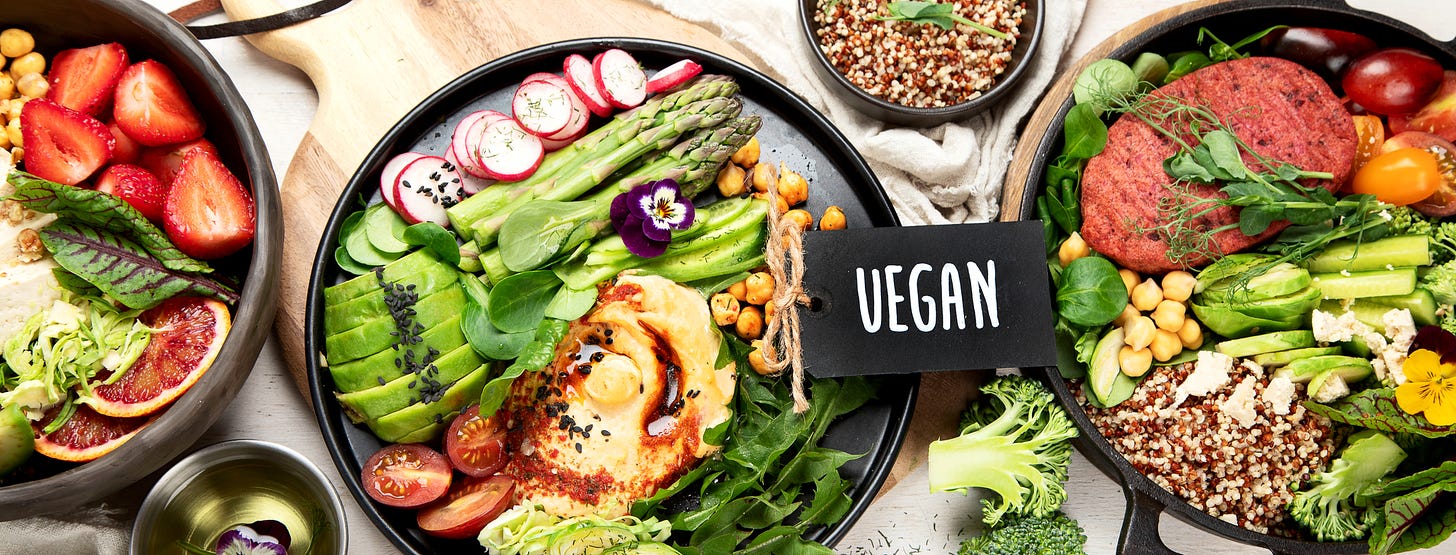As veganism continues to gain popularity around the world, there are still many misconceptions and myths surrounding this lifestyle. Veganism's increasing allure clashes with a wall of entrenched misconceptions. These whispers of nutritional deficits, exorbitant costs, blandness, and even radicalism often dissuade curious minds from exploring the vibrant world of plant-based living. Unfortunately, these doubts often stem from misinformation, painting a distorted picture far from reality.
This article aims to shine a light on some of the most pervasive myths, armed with evidence-based facts to empower you to make informed choices about your diet and lifestyle. By unraveling these misconceptions, we hope to reveal the true potential of veganism: a path to vibrant health, environmental responsibility, and compassionate living, accessible to anyone willing to embrace its possibilities. So, let's embark on a journey of debunking, one myth at a time, and pave the way for you to make a conscious and informed decision about your journey – whether vegan or not.
The Vegan Society tackles 8 more myths about veganism, demonstrating that some commonly held beliefs are mere superstitions.
Myth #1: Vegan diets are nutritionally inadequate. Many people believe that vegans are at risk of nutrient deficiencies because they do not consume animal products. However, this is a misconception. A well-planned vegan diet can provide all the necessary nutrients for optimal health, including protein, calcium, iron, and vitamin B12. Studies have shown that vegan diets offer several health benefits, such as reducing the risk of heart disease, type 2 diabetes, and certain cancers.
Myth #2: Veganism is expensive. Another common myth about veganism is that it is an expensive lifestyle. While some vegan products may be more expensive than their non-vegan counterparts, a plant-based diet can be affordable and accessible to everyone. Staples such as grains, legumes, fruits, and vegetables are generally cheaper than meat and dairy products. Additionally, cooking at home and buying in-season produce can save money.
Myth #3: Vegans can't get enough protein. Protein is an essential nutrient for the human body, and many people believe that vegans cannot get enough protein from their diet. However, this is a myth. There are plenty of vegan protein sources, such as beans, lentils, tofu, tempeh, and seitan. These plant-based protein sources not only provide the necessary amino acids but also offer fiber, vitamins, and minerals.
Myth #4: Vegan diets are bland. Some people assume that vegan food is tasteless and unappetizing, but this couldn't be further from the truth. There are countless delicious vegan recipes and ingredients to explore, from hearty stews and curries to decadent desserts and snacks. Furthermore, veganism encourages creativity in the kitchen, and many people find that experimenting with new ingredients and flavors is a fun and rewarding experience. (NutritionFacts.org healthy whole food recipes)
Myth #5: Veganism is an extreme lifestyle choice only suited for radical activists. This is a common myth that suggests veganism is only for a small group of people who hold extreme beliefs. However, veganism is a lifestyle choice that is increasingly adopted by a diverse range of people who are conscious about animal welfare, the environment, and personal health. Veganism is a growing movement that appeals to people from all walks of life, including athletes, celebrities, and everyday individuals who want to make a positive impact on the world. While there may be some vocal activists within the vegan community, the majority of vegans are simply regular people who have made a conscious choice to reduce their impact on animals and the planet.
Summary
Debunking these common myths and misconceptions about veganism can help people make informed decisions about their diet and lifestyle.
Veganism's rising popularity faces a hurdle: persistent myths. One misconception claims it's nutritionally lacking, which is untrue. With planning, vegans can get all the necessary nutrients, even enjoying health benefits like reduced heart disease risk. Cost is another concern, but a plant-based diet can be surprisingly affordable, relying on staples like grains and legumes that are often cheaper than animal products. The protein myth also crumbles when you consider the abundance of vegan protein sources like beans and tofu. The idea that vegan food is bland is easily defeated by the vast and innovative world of plant-based recipes and flavors. Finally, dismissing veganism as an extremist movement erases the reality of its diverse appeal, attracting people from all walks of life who seek better animal welfare, environmental impact, and personal health. So, when considering veganism, remember - facts, not fiction, should guide your decision. It can be a healthy, delicious, and accessible choice for anyone willing to explore its possibilities.
Vegan Myths DEBUNKED! | With Dr. Neal Barnard
Where do I get my protein? Are carbs fattening? Will soy lead to cancer? Dr. Barnard has the answers to these common vegan questions and more! Find these myths and more in Dr. Barnard's new book, The Vegan Starter Kit: PCRM.org/VeganStarterKit.
Receive a single informative article daily at 12:01 AM by email. For additional updates, explore my homepage with exciting content on vegan and plant-based news, coupled with delightful recipes. Stay connected to the vegan world and all it has to offer.




